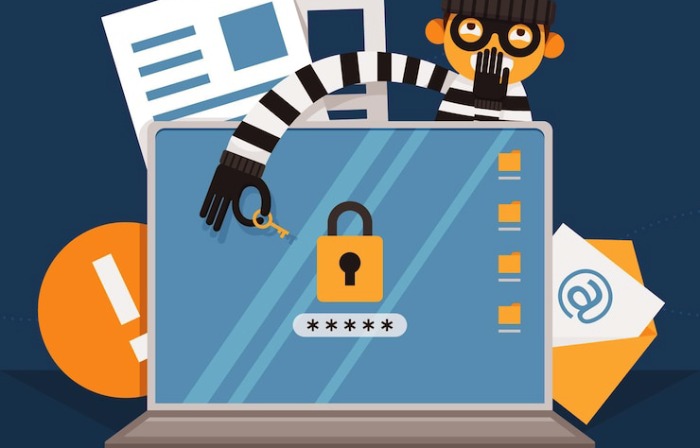DMARC Report Service: Monitor, Analyze &
Secure Your Email Domain
As the world of email communication continues to change rapidly, safeguarding your domain against misuse has become increasingly important. Domain-based Message Authentication, Reporting & Conformance (DMARC) serves as a crucial protocol that helps organizations fight against email spoofing, phishing schemes, and unauthorized use of emails. However, simply setting up DMARC is just the beginning; the true defense lies in comprehending and managing the reports it generates. A DMARC report service enables organizations to oversee, interpret, and protect their email domains by converting intricate XML data into practical insights.
What is a DMARC Report?
When you set up a DMARC policy in your DNS settings, it directs email servers that receive messages to carry out authentication verification through SPF (Sender Policy Framework) and DKIM (DomainKeys Identified Mail). The outcome of these verifications determines the server's actions regarding emails that do not pass authentication, allowing them to be accepted, placed in quarantine, or completely rejected.
Daily, email service providers that handle your emails generate aggregate DMARC reports and send them to a specified email address. These reports are formatted in XML and provide comprehensive information about the processing of emails from your domain, including details like IP addresses, sources of sending, and results of the authentication checks. Some providers also offer forensic reports that give more detailed insights into messages that failed authentication.
While these reports hold a wealth of valuable information, they can be extremely difficult to interpret without appropriate analytical tools.

Why You Need a DMARC Report Service
Although it's possible to receive and analyze raw DMARC reports on your own, utilizing a DMARC report service greatly enhances the experience by making the data more accessible and understandable.
- Transforms Raw XML Data: XML files are not user-friendly. A DMARC report service converts these files into visual formats like dashboards, graphs, and tables for easier comprehension.
- Detects Malicious Actors: You can swiftly identify unauthorized IP addresses or third-party services attempting to mimic your domain.
- Monitors Compliance Metrics: Keep track of how legitimate email sources fare against SPF and DKIM evaluations.
- Mitigates Business Email Compromise (BEC): By implementing proper authentication measures, you lower the chances of attackers spoofing your domain to deceive customers or partners.
Key Features of a DMARC Report Service
An effective DMARC reporting platform does more than merely display information; it equips domain owners to make informed decisions by providing functionalities such as:
Visualized Reporting
Access user-friendly dashboards that display metrics such as pass/fail rates, origin of submissions, geographic locations of IP addresses, authentication patterns, and domain alignment scores. These visual representations enable both technical and non-technical stakeholders to grasp the underlying processes effectively.
Threat Detection and Alerts
Create personalized notifications for irregularities such as sudden increases in failed login attempts, unfamiliar sending origins, or unknown IP addresses. This allows for quicker reactions to possible security risks.
Source Authentication Monitoring
Keep an eye on how third-party email services, such as CRMs, marketing platforms, or cloud services, are performing to confirm that they are correctly set up to meet DMARC requirements.
Policy Enforcement Guidance
As you advance your DMARC policy from "none" to "quarantine" and finally to "reject," the platform offers guidance on the right moments to implement these changes, ensuring that you avoid unintentionally blocking genuine traffic.

Historical Insights
Examine past data to uncover long-term patterns and pinpoint ongoing challenges. This is essential for audits, regulatory compliance, and ongoing enhancement.
The Security Benefits of DMARC Reporting
DMARC reports offer essential insights for enhancing email security. By analyzing these reports effectively, you can:
- Identify and prevent email spoofing and impersonation threats
- Confirm that all your authorized email senders are correctly authenticated
- Enhance email deliverability, fostering trust with your recipients
- Adhere to industry regulations and reduce the risk of being blacklisted
For companies that depend significantly on email communication, this is vital for protecting customer relationships, maintaining brand integrity, and securing revenue. To uncover more, simply click the link.
Choosing the Right DMARC Report Service
Services vary significantly in quality. When assessing providers, keep the following aspects in mind:
- User-friendliness: Is the platform intuitive enough to help you understand data and make decisions easily?
- Scalability: Is it capable of handling numerous domains, brands, or subdomains?
- Customer support: Is there access to expert assistance for troubleshooting or understanding reports?
- Automation: Does it handle tasks such as DNS updates, report processing, or policy suggestions automatically?
Notable DMARC reporting services include Valimail, DMARCian, Agari, and EasyDMARC, each offering distinct advantages tailored to your organization's size and security requirements.